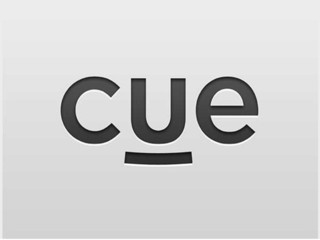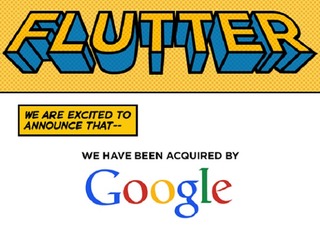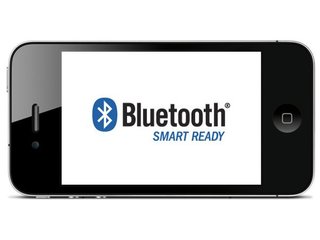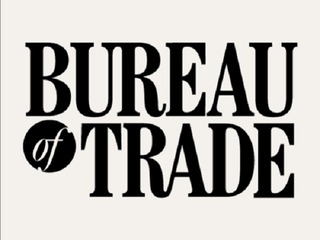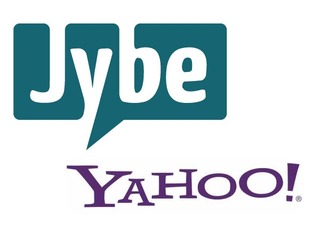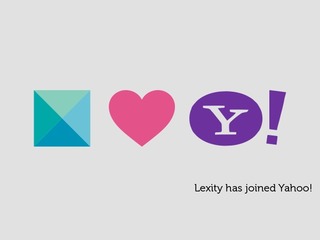Global AI in healthcare market expected to rise to $164B by 2030
The market size for 2023 was $10.31 billion
Read more...
Wow, 2013 went by way too fast!
It seems like just yesterday that I was writing my year in review stories for 2012. At this rate, I feel like I should be getting started on my 2014 predictions already!
Looking back on the past 12 months, there was a lot that happened. We said goodbye to some old friends, saw the rise of a big new player in the social media world, while watching another achieve its dream of going public with dramatic success.
But I think that, a few years down the road, when I think back on 2013, what I will really is that this was the year that Yahoo went absolutely insane with its acquisitions, picking up what seemed like every single small company in Silicon Valley.
Seriously, the company bought 26 start ups this year alone!
Obviously no other company out there was able to match that, but it should still be interesting to take a look at look at the M&A space this year, and how the rest of the big name companies out there stacked up.
After making a big splash with its purchase of Instagram in 2012, Facebook tried multiple times to replicate it in 2013, only to be shot down.
First, the company tried to go after Israeli social traffic app Waze, which it was reportedly willing to spend up to $1 billion on. Eventually, the company was bought by Google for $966 million. The Waze team wanted to remain in Israel, and this reportedly became an issue with Facebook.
Facebook also tried to buy messaging app Snapchat two separate times, first offering $1 billion, then a staggering $3 billion, both of which Snapchat turned down. The company is reportedly raising more money, and thinks it can get a better deal.
So Facebook struck out a couple of times this year, but don't feel too bad for them. The company was able to get its foot in the Israeli door by picking mobile data optimization company Onavo, and is also looking to expand to India by making its first purchase there as well.
Plus, there's always the chance that it could land Snapchat, if it is willing to pony up enough cash next year.
Google made one big acquisition in 2013, the aforementioned Waze.
Beyond that, though, a big part of its strategy seemed to be picking up a bunch of smaller companies that would have the expertise to be able to contribute to its next big event: Google Glass, which is expected to be released to the public next year.
That is why its list of purchases included voice and image search company DNNresearch, gesture recognition company Flutter, and social and behavioral sensing company Behavio. All of these types of technology will be crucial to making Glass work.
Even Bump, which allows for the transferring of files by physically bumping two phones together, could potentially be something that eventually becomes part of Glass.
Microsoft
No matter what else Microsoft bought this year, there is one deal that we will all be talking about for years and year, and that is its $7.2 billion acquisition of Nokia's mobile phones unit.
The deal will allow Microsoft to gain more control over the user experience on its growing WIndows Phone operating system, and will put it in the same league as Apple, the other company that creates both its own phones and its own OS.
The deal was recently passed by both the FTC and the EU, and will likely be closed early next year. And once it does, it will obviously have a big effect on the smartphone market.
Apple
Looking at all the purchases Apple made this year, one thing becomes clear: the company really, really wants to make the much-maligned Apple Maps work.
Three of its purchases, HopStop, Locationary, and Embark, were mapping companies. And WifiSlam is an indoor-GPS company that allows mobile apps to detect a phone user’s location in a building using Wi-Fi signals.
Even PrimseSense, which is the company that is behind Microsoft's motion-detecting Kinect game console, apparently has to do with mapping as well. Companies, such as Matterport, which makes a camera for mapping three-dimensional spaces, already use PrimseSense chips.
Its pretty obvious where Apple believes it needs the most help right now.
Amazon
With only four acquisitions this year, it's hard to say that Amazon had any specific strategy in mind with these purchased.
IVONA provides text-to-speech technology, and Liquavista develops color e-paper video screens, both of which will no doubt be used to ehance the Kindle. GoodReads is a social network for books, while TenMarks helps teachers and parents deliver innovative mathematics curriculum to students. So I guess those two are kind of related? They both involve learning and reading.
eBay
Four of these purchases are designed to improve the experience for eBay users.
The company said it would use price research firm Decide.com to produce more detailed insights and price guidance to sellers, to help them better compete on goods. Shutl will help eBay expand its same day delivery service, while Bureau of Trade will give users a more personal way to shop.
Meanwhile, 2dehands.be and 2ememain.be are a staple in Belgium, with 5.5 million unique visitors coming to the sites each month. They join the eBay Classifieds Group.
On the other end is payments platform Braintree, which became part of PayPal and was designed to help the company expand its mobile offerings.
Yahoo
Now we finally get to the big dog of 2013, Yahoo.
Saying that Yahoo went a little nuts with the spending this year would be an understatement. It became almost a weekly occurance of writing about yet another start up that Yahoo had gotten its hands on.
But there was method behind this madness, namely to get Yahoo up to seed on mobile, gaming and video.
After its Q3 earnings report in October 2012, Yahoo CEO Marissa Mayer said that mobile was not “only a daily habit, but a fundamental platform shift. A platform shift we have to ride and participate in order to be relevant.”
In other words: the company was going to be making a big effort to get into mobile. And that is exactly what it did this year, starting with social news start-up Snip.it in January, location discovery app Alike in February, and continuing with news summarizer Summly and productivity app Astrid.
The company also bought social media web browser startup Rockmelt and email and address book management app Xobni to shore up its position in mobile.
The company also made a number gaming acquisitions, including fantasy sports app Bignoggin; PlayerScale, which makes software infrastructure for cross-platform gaming; and game developer Loki Studios.
And finally there was video, which was a space the company paid a lot of attention to this year. It bought video app Qwiki, as well as photo and video sharing app Ptch and live concert streaming platform Evntlive.
Of course, Yahoo did have its one big, giant purchase that made all the headlines: its $1.1 billion deal to buy up Tumblr.
(Image source: https://www.cutecaptions.com)
The market size for 2023 was $10.31 billion
Read more...At Culture, Religion & Tech, take II in Miami on October 29, 2024
Read more...The company will use the funding to broaden the scope of its AI, including new administrative tasks
Read more...Startup/Business
Joined Vator on
Snip.it collects the best of the Web. It enables consumers to easily “snip” content - videos, images, and articles - and share their opinions with the world.
Startup/Business
Joined Vator on
Xobni offers a new way to organize and search your Outlook email. Xobni creates profiles for each person that emails you. These profiles contain relationship statistics, contact information, social connections, threaded conversations, and shared attachments. Our users tell us that Xobni makes your inbox work the way your mind does.Startup/Business
Joined Vator on
alike enables you to use the places you like to find new places you’ll love.
Keywords suck. First, they are too simplistic. When you search for a coffee shop a keyword based engine won’t know if you wanted the best java in town or a nearby place to crank out some emails. Second, they are too vague. Google returns 12,938 results for coffee shops in San Francisco. And finally, they are generic – with rankings based on popularity/SEO rather than relevance. None of the current options let you organize results to find what you really want.
The alike engine takes search beyond the keyword to solve this problem. Using alike anyone can simply enter the name of something they enjoy, alike will identify this ‘entity’, and then alike will provide the user with similar ‘entities’ that they will love.
The alike search engine has developed a semantic understanding of many different entities (places, products, people) and their attributes (locations, cost, reviews, preferences).
Startup/Business
Joined Vator on
Astrid is a social productivity platform that helps people get stuff done with engaging reminders and social pressure. It is simple enough for the casual list-maker but scales to the GTD life-hacker. It is used by college students to share workouts, busy mothers to families, and business teams to manage companies.
Users share goals from an iPhone, Android or web app privately to friends or colleagues, or publicly on Facebook or Twitter. Invited guest can add or complete tasks, comment via email and monitor progress with mobile notifications.

Joined Vator on

